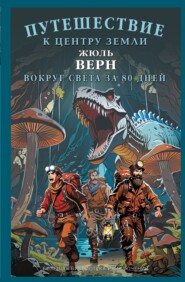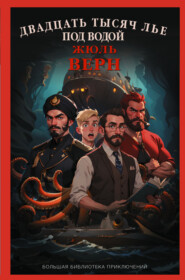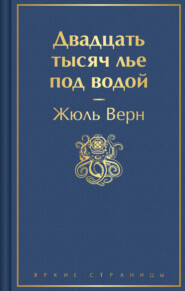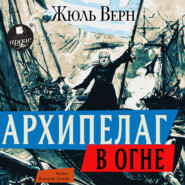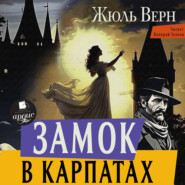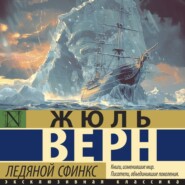По всем вопросам обращайтесь на: info@litportal.ru
(©) 2003-2024.
✖
Пятнадцатилетний капитан / Dick Sand. A Captain at Fifteen. Уровень 2
Настройки чтения
Размер шрифта
Высота строк
Поля
“Are you not satisfied,” Mrs. Weldon interposed; “with the result of your explorations in New Zealand?”
“Yes, yes,” answered Benedict, with reluctance; “I must not say I was dissatisfied. But, you know, an entomologist is always craving for fresh additions to his collection.”
While he was speaking, Dingo came and jumped on Benedict, and began to fawn on him.
“Get away, you brute!” he exclaimed, thrusting the dog aside.
“Poor Dingo! good dog!” cried Jack, running up and taking the animal’s huge head between his tiny hands.
“Your interest in cockroaches, Mr. Benedict,” observed the captain, “does not seem to extend to dogs.”
“This creature,” answered Benedict; “ disappointed me.”
“What do you mean? You cannot catalogue it?” asked Mrs Weldon laughingly.
“I understand that this dog was found on the West Coast of Africa,” replied Benedict, “and I hoped that it had some African insects in its coat. I searched its coat well, over and over again, but I could not find a single specimen.”
Captain Hull and Mrs. Weldon laughed.
Such were the conversations throughout the monotonous hours of smooth sailing, while the “Pilgrim” was making its headway to the east.
Cousin Benedict began to teach Hercules entomology. He was studying the extensive collection of stag-beetles, tiger-beetles and lady-birds.
Mrs. Weldon was giving her attention to the education of Master Jack. She was teaching her son to read and write, Dick Sand taught him arithmetic. The child made a rapid progress. Mrs. Weldon used a set of cubes, on the sides of which the various letters were painted in red. There were more than fifty cubes, which, besides the alphabet, included all the digits. It was astonishing how quickly the child advanced, and how many hours he spent in the cabin and on deck. Mrs. Weldon was very satisfied.
On the morning of the 9th an incident occurred. Jack was half lying, half sitting on the deck, amusing himself with his letters. He made a word with which he intended to puzzle old Tom. All at once, Dingo, who was gambolling round the child, made a sudden pause, lifted his right paw, and wagged his tail convulsively. Then the animal seized a capital S in his mouth, and carried it some paces away.
“Oh, Dingo, Dingo! you mustn’t eat my letters!” shouted the child.
But the dog came back again, and picked up another letter. This time it was a capital V. Jack uttered an exclamation of astonishment which brought to his side not only his mother, but the captain and Dick. Jack cried out in the greatest excitement that Dingo knew how to read.
Dick Sand smiled and stooped to take back the letters. Dingo snarled and showed his teeth, but the apprentice was not frightened. He replaced the two blocks among the rest. Dingo in an instant pounced upon them again, and laid a paw upon each of them.
“It is very strange,” said Mrs. Weldon; “he has picked out S V again.”
“S V!” repeated the captain thoughtfully; “are not those the letters that form the initials on his collar?”
He turned to the old negro, and continued,
“Tom didn’t you say that this dog did not always belong to the captain of the ‘Waldeck’?”
“I often heard from the captain,” replied Tom, “that he found the dog at the mouth of the Congo[13 - at the mouth of the Congo – у устья Конго].”
Mrs. Weldon asked, -
“Do you recall these letters, captain?”
“Mrs. Weldon,” the captain replied; “I can associate them with the fate of a brave explorer.”
“Whom do you mean?” said the lady.
“In 1871, just two years ago,” the captain continued, “a French traveller set out to cross Africa from west to east. His starting-point was the mouth of the Congo, and his exit was Cape Deldago, at the mouth of the River Rovouma[14 - River Rovouma – река Ровума]. The name of this man was Samuel Vernon. These letters – Vernon’s initials – are engraved on Dingo’s collar.”
“What do we know about this traveller?” asked Mrs. Weldon.
“Nothing. I think that he failed to reach the east coast. He died upon his way, or he was made prisoner[15 - he was made prisoner – его взяли в плен] by the natives. Did this dog belong to him?”
“But you have no reason to suppose, Captain Hull, that Vernon ever owned a dog?”
“I never heard of it,” said the captain; “but the dog knows these letters. Look at the animal, madam! It does not only read the letters for himself, but invites us to come and read them with him.”
Whilst Mrs. Weldon was watching the dog with much amusement, Dick Sand asked the captain whether the traveller Vernon started on his expedition quite alone.
“That is really more than I can tell you, my boy,” answered Captain Hull.
Meanwhile Negoro quietly appeared on deck. The dog caught sight of the cook and began to bristle with rage. Negoro withdrew immediately to his room.
The incident did not escape the captain’s observation.
“No doubt,” he said, “there is some mystery here.”
“Don’t you think, sir, it’s strange that this dog knows the alphabet?”
“My mamma told me about a dog whose name was Munito, who could read as well as a schoolmaster, and could play dominoes,” said Jack.
Mrs. Weldon smiled.
“I am afraid, my child, the dog’s master, who was a clever American, taught Munito some curious tricks.”
“The more I think of it, the more strange it is,” said Captain Hull; “Dingo evidently has no acquaintance with any other letters except the two S V. Some circumstance which we cannot guess made the animal familiar with them.”
“What a pity Dingo cannot talk!” exclaimed the apprentice.
Chapter VI
A Whale
The dog’s manners repeatedly formed a subject of conversation between Mrs. Weldon, the captain, and Dick. The young apprentice does not trust Negoro, although the man’s conduct in general gave no grounds for suspicion.
Dingo soon gained the reputation of the cleverest dog in the world.
“Perhaps Dingo can,” suggested Bolton, the helmsman, “some fine day predict which way the wind lies.”
“Ah! why not?” assented another sailor; “parrots talk, and magpies talk; why can’t a dog? I think it is easier to speak with a mouth than with a beak.”
“Of course it is,” said Howick, the boatswain; “but who knows a talking dog?”
Thus Dingo became a hero. On several occasions Captain Hull repeated the experiment with the blocks, invariably with the same result; the dog never failed.
“Yes, yes,” answered Benedict, with reluctance; “I must not say I was dissatisfied. But, you know, an entomologist is always craving for fresh additions to his collection.”
While he was speaking, Dingo came and jumped on Benedict, and began to fawn on him.
“Get away, you brute!” he exclaimed, thrusting the dog aside.
“Poor Dingo! good dog!” cried Jack, running up and taking the animal’s huge head between his tiny hands.
“Your interest in cockroaches, Mr. Benedict,” observed the captain, “does not seem to extend to dogs.”
“This creature,” answered Benedict; “ disappointed me.”
“What do you mean? You cannot catalogue it?” asked Mrs Weldon laughingly.
“I understand that this dog was found on the West Coast of Africa,” replied Benedict, “and I hoped that it had some African insects in its coat. I searched its coat well, over and over again, but I could not find a single specimen.”
Captain Hull and Mrs. Weldon laughed.
Such were the conversations throughout the monotonous hours of smooth sailing, while the “Pilgrim” was making its headway to the east.
Cousin Benedict began to teach Hercules entomology. He was studying the extensive collection of stag-beetles, tiger-beetles and lady-birds.
Mrs. Weldon was giving her attention to the education of Master Jack. She was teaching her son to read and write, Dick Sand taught him arithmetic. The child made a rapid progress. Mrs. Weldon used a set of cubes, on the sides of which the various letters were painted in red. There were more than fifty cubes, which, besides the alphabet, included all the digits. It was astonishing how quickly the child advanced, and how many hours he spent in the cabin and on deck. Mrs. Weldon was very satisfied.
On the morning of the 9th an incident occurred. Jack was half lying, half sitting on the deck, amusing himself with his letters. He made a word with which he intended to puzzle old Tom. All at once, Dingo, who was gambolling round the child, made a sudden pause, lifted his right paw, and wagged his tail convulsively. Then the animal seized a capital S in his mouth, and carried it some paces away.
“Oh, Dingo, Dingo! you mustn’t eat my letters!” shouted the child.
But the dog came back again, and picked up another letter. This time it was a capital V. Jack uttered an exclamation of astonishment which brought to his side not only his mother, but the captain and Dick. Jack cried out in the greatest excitement that Dingo knew how to read.
Dick Sand smiled and stooped to take back the letters. Dingo snarled and showed his teeth, but the apprentice was not frightened. He replaced the two blocks among the rest. Dingo in an instant pounced upon them again, and laid a paw upon each of them.
“It is very strange,” said Mrs. Weldon; “he has picked out S V again.”
“S V!” repeated the captain thoughtfully; “are not those the letters that form the initials on his collar?”
He turned to the old negro, and continued,
“Tom didn’t you say that this dog did not always belong to the captain of the ‘Waldeck’?”
“I often heard from the captain,” replied Tom, “that he found the dog at the mouth of the Congo[13 - at the mouth of the Congo – у устья Конго].”
Mrs. Weldon asked, -
“Do you recall these letters, captain?”
“Mrs. Weldon,” the captain replied; “I can associate them with the fate of a brave explorer.”
“Whom do you mean?” said the lady.
“In 1871, just two years ago,” the captain continued, “a French traveller set out to cross Africa from west to east. His starting-point was the mouth of the Congo, and his exit was Cape Deldago, at the mouth of the River Rovouma[14 - River Rovouma – река Ровума]. The name of this man was Samuel Vernon. These letters – Vernon’s initials – are engraved on Dingo’s collar.”
“What do we know about this traveller?” asked Mrs. Weldon.
“Nothing. I think that he failed to reach the east coast. He died upon his way, or he was made prisoner[15 - he was made prisoner – его взяли в плен] by the natives. Did this dog belong to him?”
“But you have no reason to suppose, Captain Hull, that Vernon ever owned a dog?”
“I never heard of it,” said the captain; “but the dog knows these letters. Look at the animal, madam! It does not only read the letters for himself, but invites us to come and read them with him.”
Whilst Mrs. Weldon was watching the dog with much amusement, Dick Sand asked the captain whether the traveller Vernon started on his expedition quite alone.
“That is really more than I can tell you, my boy,” answered Captain Hull.
Meanwhile Negoro quietly appeared on deck. The dog caught sight of the cook and began to bristle with rage. Negoro withdrew immediately to his room.
The incident did not escape the captain’s observation.
“No doubt,” he said, “there is some mystery here.”
“Don’t you think, sir, it’s strange that this dog knows the alphabet?”
“My mamma told me about a dog whose name was Munito, who could read as well as a schoolmaster, and could play dominoes,” said Jack.
Mrs. Weldon smiled.
“I am afraid, my child, the dog’s master, who was a clever American, taught Munito some curious tricks.”
“The more I think of it, the more strange it is,” said Captain Hull; “Dingo evidently has no acquaintance with any other letters except the two S V. Some circumstance which we cannot guess made the animal familiar with them.”
“What a pity Dingo cannot talk!” exclaimed the apprentice.
Chapter VI
A Whale
The dog’s manners repeatedly formed a subject of conversation between Mrs. Weldon, the captain, and Dick. The young apprentice does not trust Negoro, although the man’s conduct in general gave no grounds for suspicion.
Dingo soon gained the reputation of the cleverest dog in the world.
“Perhaps Dingo can,” suggested Bolton, the helmsman, “some fine day predict which way the wind lies.”
“Ah! why not?” assented another sailor; “parrots talk, and magpies talk; why can’t a dog? I think it is easier to speak with a mouth than with a beak.”
“Of course it is,” said Howick, the boatswain; “but who knows a talking dog?”
Thus Dingo became a hero. On several occasions Captain Hull repeated the experiment with the blocks, invariably with the same result; the dog never failed.






